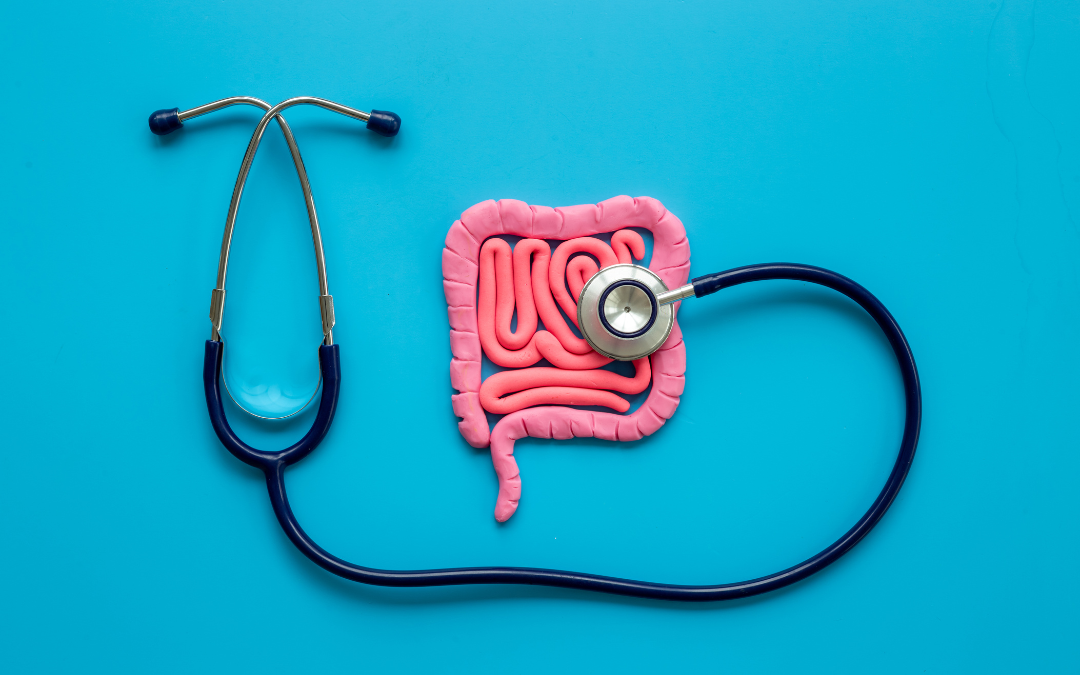When it comes to your health, it’s easy to focus on the usual suspects: your heart, lungs, or muscles. But one unsung hero plays a crucial role in your overall well-being—your gut. Often overlooked, the gut is a powerhouse of activity that influences many other systems in your body. From digestion to immunity, mental health to metabolism, the state of your gut can significantly impact how you feel every day. Understanding the gut’s pivotal role is key to achieving optimal health.
The Gut as the Center of Health
Your gut is home to trillions of bacteria, viruses, and fungi, collectively known as the gut microbiome. This complex community of microbes doesn’t just help digest food; it communicates with your immune system, produces essential nutrients, and even affects your mood and brain function. In essence, the gut acts as a central hub, connecting various systems within the body. When your gut is in balance, it supports overall health, but when it’s out of balance, the ripple effects impact your entire body. It’s like when one Wi-Fi router goes down and suddenly the whole house is in chaos—yes, your gut is that important!
Gut Health and the Immune System
Did you know about 70% of your immune system resides in your gut? This is because your gut lining is the first defense against harmful pathogens. The beneficial bacteria in your gut help to regulate immune responses, ensuring that your immune system reacts appropriately to invaders without overreacting, which can lead to autoimmune conditions. It’s like having a well-trained guard dog—protective enough to keep out intruders but not so overzealous that it starts biting the mailman.
In integrative medicine, the connection between gut health and immunity is well-recognized. Maintaining a healthy gut microbiome can enhance your immune function, reducing susceptibility to infections, allergies, and autoimmune diseases. If you’re dealing with frequent colds, allergies, or unexplained inflammation, it might be time to pay attention to your gut health—because nobody enjoys being sidelined by the sniffles.
Practical Tip: If your immune system isn’t as strong as it could be, consider working with our clinic’s Health Coach or Nutritionist to develop a gut-friendly diet with plenty of fiber, fermented foods, and prebiotics to support a healthy microbiome.
The Gut-Brain Axis: Your Second Brain
The gut is often called the “second brain” because it’s connected to your brain through a network of neurons, hormones, and chemicals, collectively known as the gut-brain axis. This connection is why you might feel butterflies in your stomach when you’re nervous or lose your appetite when stressed. It’s not just your brain playing tricks—your gut is in on it too, like a mischievous sidekick.
Research has shown that an imbalanced gut microbiome can contribute to mental health issues like anxiety, depression, and even cognitive decline. Gut bacteria produce neurotransmitters like serotonin, which influence mood and behavior. In fact, about 90% of serotonin, often called the “happy hormone,” is made in the gut. So, if you’re feeling down, it might be your gut asking for a little TLC, not just your brain.
Practical Tip: If you’re struggling with anxiety or depression, improving your gut health can be an essential part of your treatment plan. Our clinic’s integrative approach includes dietary strategies, stress management techniques, and possibly probiotic supplementation to help balance your gut microbiome and improve your mental health. Because sometimes, your gut needs to feel the love, too.
Digestive Health: The Obvious and the Overlooked
When we talk about gut health, digestion is usually the first thing that comes to mind. And for good reason—the gut is directly responsible for breaking down food, absorbing nutrients, and eliminating waste. But beyond the typical digestive issues like bloating, constipation, or acid reflux, poor gut health can lead to more severe problems like irritable bowel syndrome (IBS), leaky gut, and inflammatory bowel disease (IBD).
In integrative medicine, these conditions may indicate an imbalance in the gut microbiome. By pursuing the root cause, such as dysbiosis (an imbalance of gut bacteria), you can achieve lasting relief and improve your overall health rather than just treating symptoms. Consider it more like fixing the leak in the roof rather than just mopping up the puddle—it’s a more effective way to keep the house dry.
Practical Tip: If you suffer from chronic digestive issues, consider seeking personalized support from our Nutritionist. They can help you identify food sensitivities, recommend gut-healing foods, and suggest lifestyle changes to restore balance to your digestive system.
Gut Health and Metabolism
Your gut microbiome also plays a crucial role in regulating your metabolism. The bacteria in your gut influence how your body processes and stores fat, how you regulate blood sugar levels, and even how you feel hunger and satiety. An imbalance in your gut bacteria can contribute to metabolic disorders like obesity, type 2 diabetes, and metabolic syndrome.
For example, certain gut bacteria can extract more calories from the food you eat, contributing to weight gain. Others can influence insulin sensitivity, which affects how your body handles sugar. In functional medicine, improving gut health is a key strategy for managing metabolic issues and achieving a healthy weight. Who knew your gut was such a micromanager?
Practical Tip: If you’re struggling with weight management or blood sugar control, consider focusing on gut health. Our Health Coach can help you develop a plan that includes eating strategy changes, regular exercise, and stress management to support your metabolism and overall well-being.
The Skin-Gut Connection
Your skin often reflects what’s happening inside your body, particularly in your gut. Conditions like acne, eczema, and rosacea can be linked to gut health issues such as inflammation, leaky gut, or an imbalanced microbiome. This connection, often referred to as the skin-gut axis, highlights the importance of gut health in maintaining clear, healthy skin. Consider your gut the backstage crew for your skin’s performance—if things go haywire behind the scenes, it will show on the main stage.
Practical Tip: If you’re dealing with chronic skin issues, consider a gut-focused approach. Our Nutritionist can help you identify potential dietary triggers and recommend a gut-healing plan to improve your skin from the inside out.
A Holistic Approach to Gut Health
The impact of gut health on your overall well-being is profound, touching nearly every aspect of your body’s systems. At Integrative Family Medicine of Asheville, we understand that a healthy gut contributes to overall health. Whether dealing with digestive issues, immune challenges, mental health concerns, or metabolic disorders, addressing your gut health is a decisive step toward health and wellness.
Our team is here to support you on your journey to better gut health. We take a personalized, holistic approach that considers your unique needs and health goals. Through eating strategy, lifestyle modifications, and targeted therapies, we can help you restore balance to your gut and improve your overall quality of life.

This blog post was written by Tom Everts, PA-C, a provider at Integrative Family Medicine of Asheville. You can read more about Tom in his bio!
,References:
- Gomaa EZ. Human gut microbiota/microbiome in health and diseases: a review. Antonie Van Leeuwenhoek. 2020 Dec;113(12):2019-2040. doi: 10.1007/s10482-020-01474-7. Epub 2020 Nov 2. PMID: 33136284.
- Pickard JM, Zeng MY, Caruso R, Núñez G. Gut microbiota: Role in pathogen colonization, immune responses, and inflammatory disease. Immunol Rev. 2017 Sep;279(1):70-89. doi: 10.1111/imr.12567. PMID: 28856738; PMCID: PMC5657496.
- Ribeiro G, Ferri A, Clarke G, Cryan JF. Diet and the microbiota – gut – brain-axis: a primer for clinical nutrition. Curr Opin Clin Nutr Metab Care. 2022 Nov 1;25(6):443-450. doi: 10.1097/MCO.0000000000000874. Epub 2022 Sep 14. PMID: 36102353; PMCID: PMC9553262.
- O’Mahony SM, Clarke G, Borre YE, Dinan TG, Cryan JF. Serotonin, tryptophan metabolism and the brain-gut-microbiome axis. Behav Brain Res. 2015 Jan 15;277:32-48. doi: 10.1016/j.bbr.2014.07.027. Epub 2014 Jul 29. PMID: 25078296.
- Tomasello G, Mazzola M, Leone A, Sinagra E, Zummo G, Farina F, Damiani P, Cappello F, Gerges Geagea A, Jurjus A, Bou Assi T, Messina M, Carini F. Nutrition, oxidative stress and intestinal dysbiosis: Influence of diet on gut microbiota in inflammatory bowel diseases. Biomed Pap Med Fac Univ Palacky Olomouc Czech Repub. 2016 Dec;160(4):461-466. doi: 10.5507/bp.2016.052. Epub 2016 Oct 26. PMID: 27812084.
- O’Neill CA, Monteleone G, McLaughlin JT, Paus R. The gut-skin axis in health and disease: A paradigm with therapeutic implications. Bioessays. 2016 Nov;38(11):1167-1176. doi: 10.1002/bies.201600008. Epub 2016 Aug 24. PMID: 27554239.
Book:
- Healthy Gut, Healthy You by Michael Ruscio, DC

